Canzano: The legend of Frog lives on
“Would you like to buy the funniest joke book in the world?”
David Henry Miller sold homemade joke books for a living. For nearly 40 years, the bearded hippie known as “Frog” peddled his creations on the sidewalks near the University of Oregon bookstore and at the Eugene Saturday Market.
Frog died last Saturday.
He was admitted to Riverbend Hospital after he complained of shortness of breath. Those close to him say he suffered from congestive heart failure and recently caught COVID. “He’ll be out soon,” a friend reported on social media in mid-October. A couple of weeks later, Miller was dead.
He was 76.
This week, I received a question about Frog in the Monday Mailbag. I saved it for this column. Ron, a long-time reader, heard about his death and asked why Frog meant so much to so many people.
“A UO legend,” Ron wrote. “People like him were part of my college experience. Who are they? Why do they matter? Why are we sad when they’re gone even though we didn’t really know them at all?”
I’d argue that lots of people knew Frog. I mean, very few used his actual legal name — David Miller — but they understood his essence. His spirit hit you over the head. His legal battles with the City of Eugene were the stuff of legend (more on that in a bit). And in a world laced with uncertainty, communities need anchors such as Frog.
You knew where to find him.
You could count on him to have jokes.
There’s simplicity in that. Frog and his wagon of recycled joke books embodied Eugene’s spirit. This week, as I researched Frog, I learned about an eccentric bunch of street characters in Eugene with names such as “Uncle Ray,” “Zeus,” and “Crazy Mary.” I never met any of those folks, but I’m sure I’ve encountered people like them. Any city worth a damn has hippie ambassadors, doesn’t it?
Frog was an uplifting fixture in Eugene on East 13th Avenue near Kincaid Street. As people walked past, he’d call out: “Would you like to buy the funniest joke book in the world?”
If they ignored him, he’d say: “Guess not.”
One former UO student reported on social media: “From fall of 2002 to spring of 2006, I feel like I saw him every day, hawking his joke books outside the bookstore on 13th. I don’t know a single person who bought his joke books, but he was friendly every day I saw him. Today feels a bit less bright.”
Another, Greg Young, posted on Facebook: “I would always buy his xeroxed, homemade joke books for my daughters. He would autograph them, complete with a hand-drawn Frog logo.”
This week, someone suggested that the city erect a statue in memory of Frog so students heading to the bookstore still walk past his image daily. It wouldn’t be the same. A hunk of metal bolted to the pavement could never capture Frog’s soul or the complexity of his relationship with the City of Eugene.
Frog’s never-ending legal troubles are a fascinating layer in this story. David Schuman, the late professor at the University of Oregon School of Law, used to update his students about Frog’s battle with the city. The legal fight provided a remarkable real-world case study.
An ordinance from the mid-1980s placed restrictions on street vendors. Eugene Code section 4.860(d) said a vendor could legally sell food, flowers, or balloons. Not allowed: joke books. Frog was routinely cited by law enforcement. The summer of 1991 was particularly combative. Records show that he received a flurry of citations in July and August.
Frog had two years of college education at Ohio University before he dropped out. But he was no dummy. He hatched an idea. He sourced tiny balloons. They cost him less than a penny each. Frog sold them for $2. Down the way, he set up an old newspaper bin with a variety of his 114 joke books inside.
Buy a balloon.
Pick out a joke book — free.
I appreciate the hustle. Frog didn’t stop there. He challenged the legality of the ordinance in the state Supreme Court. A pack of city attorneys argued that the law reduced sidewalk congestion and ensured public safety. Frog argued that the ordinance was nothing more than a licensing scheme. Also, he contended it was a matter of free speech.
After all, the joke books contained his personal expressions. The city ordinance was too broadly written, Frog argued. It infringed on his First Amendment rights. City of Eugene v. David Henry Miller was heard by the Oregon Supreme Court in the spring of 1993.
Frog won, naturally.
The state’s high court reversed his convictions and ruled that while cities can regulate sidewalk commerce, they cannot impose restrictions that unjustifiably single out expressive materials like books. Next time you see a street vendor in your town, give a nod to Frog.
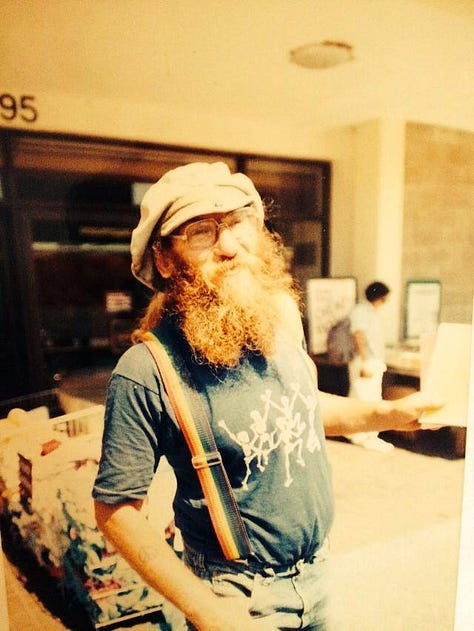
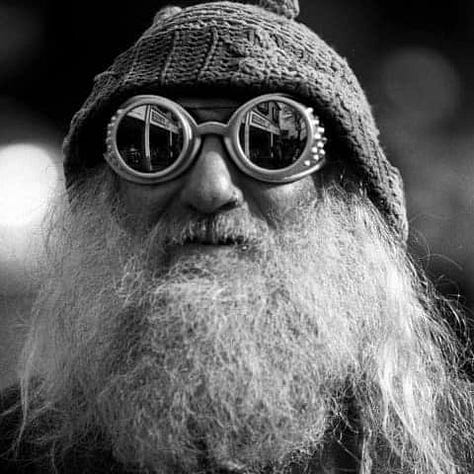
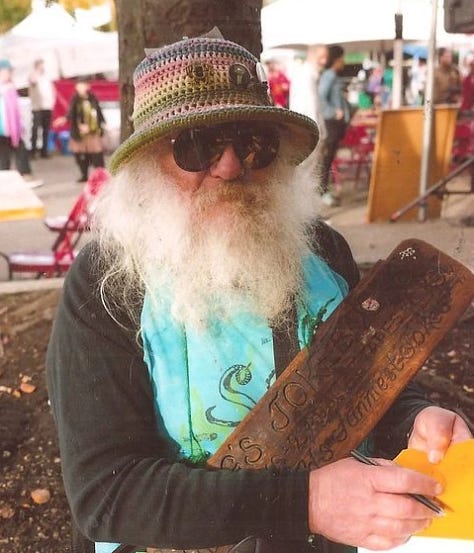
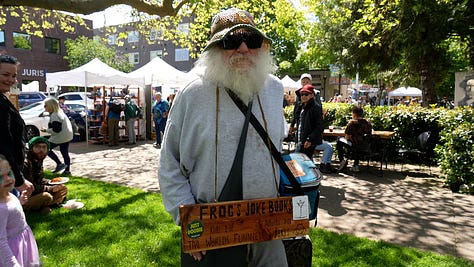
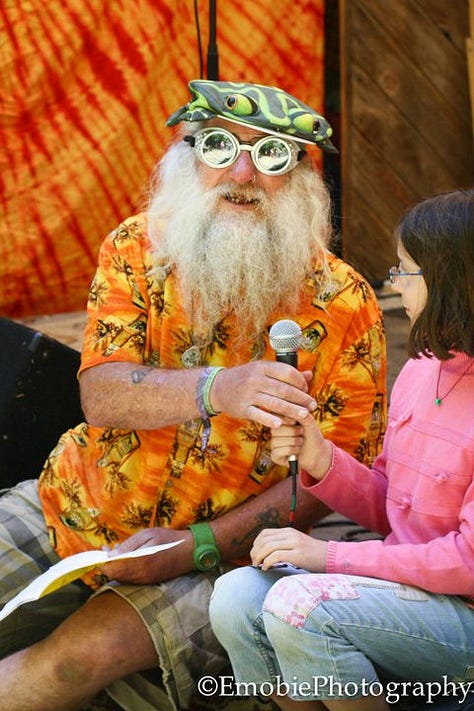
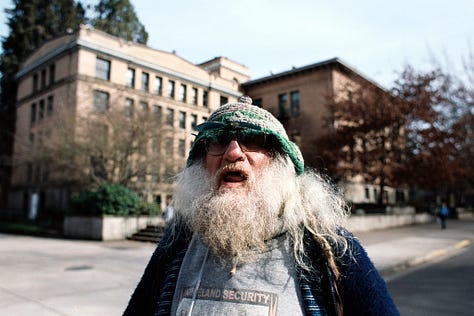
I’m a sports columnist. These are busy times in my world. The Oregon Ducks are ranked No. 1 in the first College Football Playoff poll. The Pac-12 is rebuilding and trying to sell its media rights. But I love writing about people. Particularly regular folks with everyday lives. Frog rooted for the Ducks. That his team beat Michigan on the day he died isn’t lost on me.
Early this football season, I wrote about Charles, a grocery clerk and die-hard college football fan. It was one of my favorites to write. I enjoyed putting a spotlight on the guy. Everyone knows a store clerk, a barber, a restaurant server, or a mailman in the same way I know Charles. I look for him on my trips to the store. He’s a joyful part of the experience.
I supposed that’s what Frog was, too.
Q: Did ya hear about the mathematician who had a problem with constipation?
A: He worked it out with a pencil.
Q: Why do ducks have tail feathers?
A: To cover their butt quacks.
The guy got giggles. Maybe he made you smile. Or perhaps you walked past him, never bought a book, but enjoyed knowing he was there every day. Maybe you counted on it. I’ll put it this way — David Henry Miller was a legend in his community.
He brought people joy.
He will be missed.
That’s no joke.
Thank you for reading. I appreciate all who support, subscribe, and share this independent endeavor with friends and family. If you haven’t already — please consider subscribing and gifting a subscription to someone who would enjoy it.
This is an independent reader-supported project with both free and paid subscriptions. Those who opt for the paid edition are providing vital assistance to bolster my independent coverage.


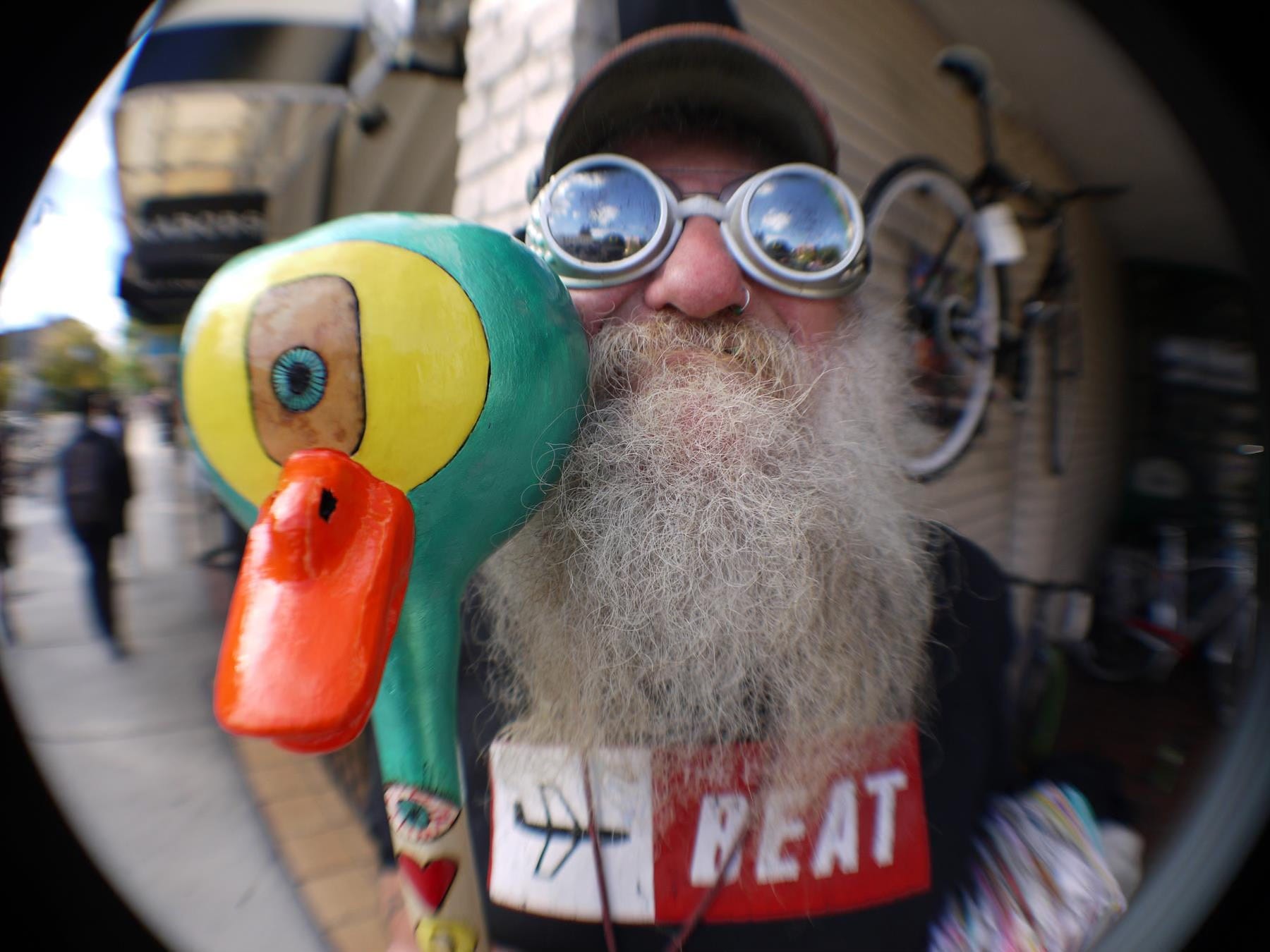
“He brought people joy.”
All any of us can ever hope to be known by
John, thanks for the uplifting story on a somewhat dismal day.